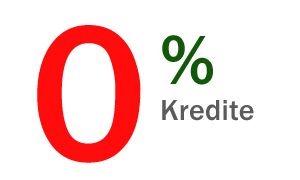
Why the SEPA Direct Debit is probably history.
Why the SEPA direct debit is probably history.
A ruling by the ECJ is the death blow for the popular online direct debit.
Deutsche Bahn is to blame again. This time not only at the usual delays, this time the railroad has also a certain share in the fact that in the future there will be no more online direct debit. But others are really to blame. And once again, the EU does not look very good in this respect.
SEPA-VO vs. Geoblocking Regulation
The so-called SEPA regulation of 31. March 2012 should u.a. ensure that there is a single European market for cashless payments. This is actually a great thing, because it ensures that no customer is better or worse off than others in SEPA. Whether someone has an account in Italy or in France must not be a reason to reject payments from this customer and not to deliver to him. Also the selected payment method is not a reason for non-delivery. Whether an Italian wants to pay in a German online store by bank transfer or credit card should make no difference.
The SEPA REGULATION provides therefore – simplified spoken – that no EU citizen may be discriminated against when offering a payment method. The same offer must apply to all customers.
In addition, the so-called Geoblocking Regulation The new regulation stipulates that online merchants must deliver to customers from all EU countries. Individual countries may not be excluded from the outset by the merchant in its store.
However, the Geoblocking Regulation also contains an exception that allows merchants to restrict the possible payment methods in the absence of creditworthiness information. According to this, it should be possible to offer customers from certain countries, for example, only credit card payment as a possible payment method. So the two regulations contradict each other on this point.
Payment methods in the online store | Image: mohamed_hassan, pixabay.com, Pixabay License
Online direct debit
However, Deutsche Bahn referred to this exemption in the Geoblocking Regulation. So it allowed the popular SEPA direct debit only German customers. The background to this was that credit checks are considerably more expensive for customers from other countries. For example, a credit check on customers in Austria costs 15 times more than queries in this country. For this reason, Deutsche Bahn refused to allow foreign customers to pay by direct debit. So far so understandable.
However, an Austrian consumer protection association did not agree with this, citing the SEPA Regulation and Geoblocking Regulation, and sued Deutsche Bahn. The European Court of Justice (ECJ) followed now this opinion and judged finally. The Advocate General of the ECJ made this statement:
The requirement that a customer must be domiciled in a certain member state is tantamount to specifying the member state in which a payment account must be held.
Thus the practice of the railroad contradicts the discrimination ban in the SEPA area, according to the opinion of the ECJ.
According to this ruling, Deutsche Bahn and any other online merchant must offer the same payment options for all customers in the SEPA area. No matter where the respective customer is domiciled and no matter what the costs of any creditworthiness query entail.
This means that the direct debit payment option is dead, at least in online trading. Because the direct debit option can either only be offered to all customers or to none at all. Due to the partly exorbitantly high costs, probably most dealers will not offer the debit note in the future any longer. As direct debiting is very popular in Germany, this can lead to some annoyance among customers and ultimately to a drop in sales.
The Advocate General of the ECJ, Szpunar remarked smugly:
No dealer is forced in Europe to the on-line trade.
If this is really the opinion of the entire ECJ and the relevant bodies of the EU, then good night online trading.




